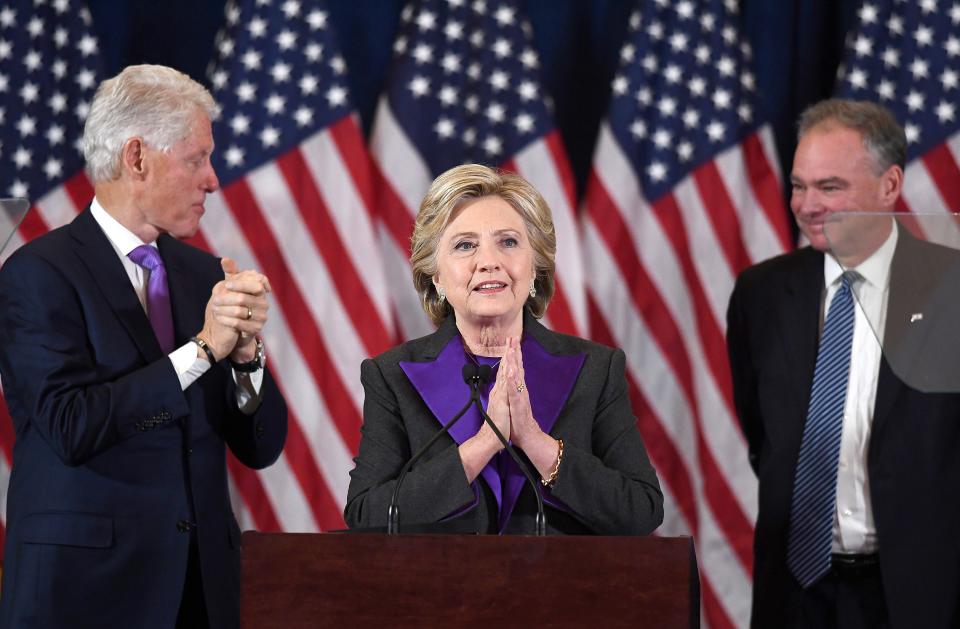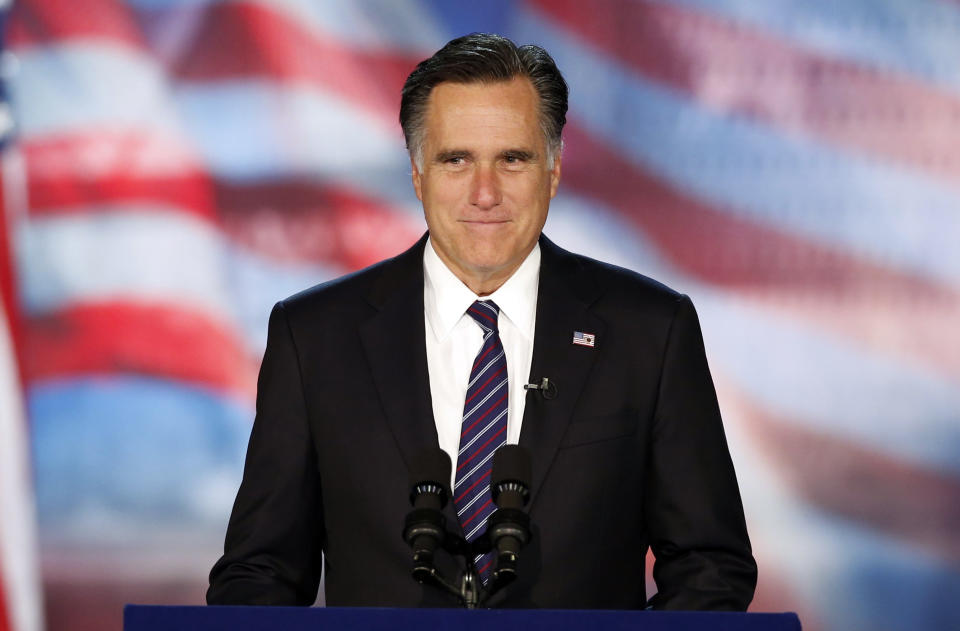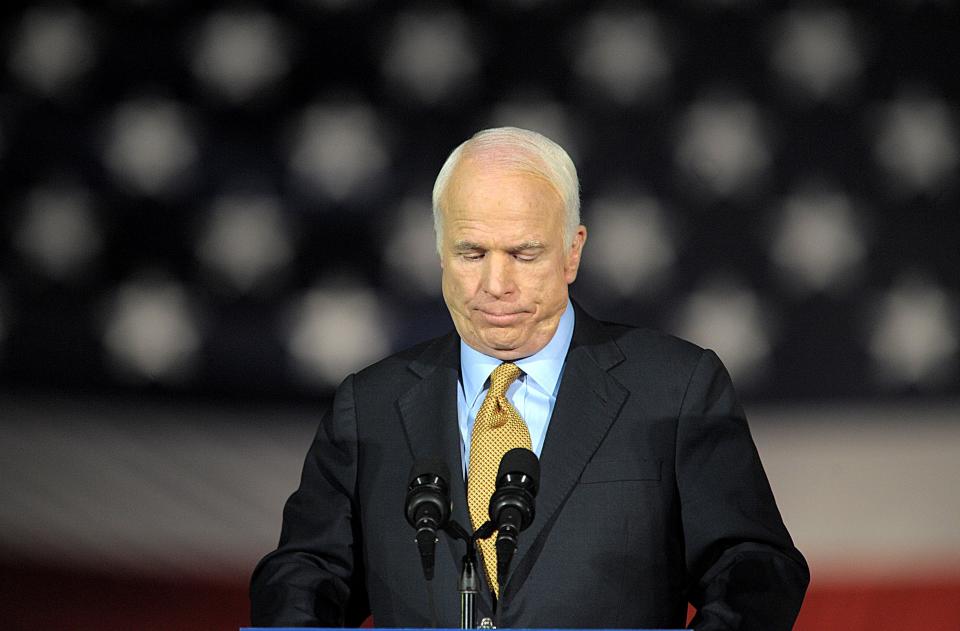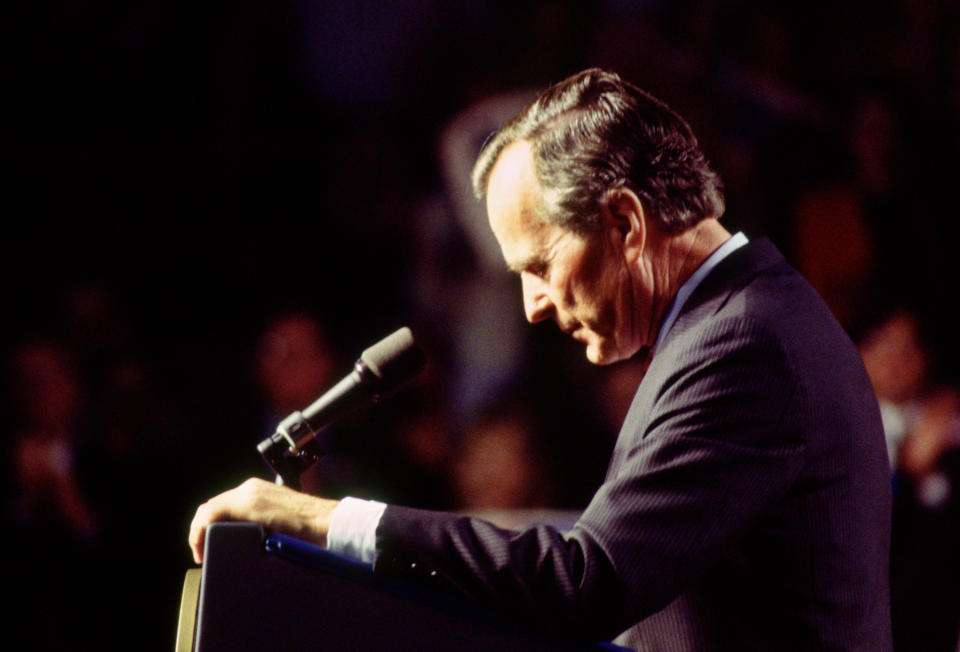Trump is refusing to concede the election. Here's how losing presidential candidates in history have done it.
President Trump is refusing to concede the 2020 election to President-elect Joe Biden, vowing to contest the results amid unfounded claims of fraud and depriving Americans, at least so far, of a long-held tradition: the losing candidate’s concession speech.
Four years ago, following a remarkably bitter race, Hillary Clinton conceded defeat to Trump in a phone call on election night, then delivered a formal concession speech the following day, imploring her supporters to accept the results.
“I still believe in America, and I always will,” Clinton said. “And if you do, then we must accept this result and then look to the future. Donald Trump is going to be our president. We owe him an open mind and the chance to lead. Our constitutional democracy enshrines the peaceful transfer of power. And we don’t just respect that, we cherish it.”

In 2012, Mitt Romney, then the Republican nominee, conceded the race to President Barack Obama in a speech on election night shortly after calling him.
“I have just called President Obama to congratulate him on his victory,” Romney said. “His supporters and his campaign also deserve congratulations. I wish all of them well, but particularly the president, the first lady and their daughters. This is a time of great challenges for America, and I pray that the president will be successful in guiding our nation.”
“The nation, as you know, is at a critical point,” Romney continued. “At a time like this, we can’t risk partisan bickering and political posturing. Our leaders have to reach across the aisle to do the people’s work. And we citizens also have to rise to the occasion.”
“This election is over,” he added, “but our principles endure.”
Romney is one of the few Republican senators to publicly congratulate Biden on his election victory.

In 2008, when Obama became the first African American to be elected president, Sen. John McCain’s concession speech acknowledged the historical importance of his election.
“This is an historic election, and I recognize the special significance it has for African Americans, and for the special pride that must be theirs tonight,” McCain said.
During his speech, the Arizona Republican waved off supporters who began to boo Obama.
“A century ago, President Theodore Roosevelt’s invitation of Booker T. Washington to dine at the White House was taken as an outrage in many quarters,” McCain noted. “America today is a world away from the cruel and prideful bigotry of that time. There is no better evidence of this than the election of an African American to the presidency of the United States.”

The last one-term president before Trump, George H.W. Bush, used his concession speech in 1992 to assure Americans there would be a “smooth transition of power” to President-elect Bill Clinton, then the governor of Arkansas.
“Well, here’s the way I see it,” Bush said. “The people have spoken, and we respect the majesty of the Democratic system. I just called Gov. Clinton over in Little Rock and offered my congratulations.”
“I want the country to know that our entire administration will work closely with his team to ensure the smooth transition of power,” he said. “There is important work to be done, and America must always come first, so we will get behind this new president and wish him well.”

In 2000, Al Gore famously conceded the race to George W. Bush on election night but retracted it when it became clear Florida was too close to call. After a five-week legal battle that ended with the Supreme Court ruling in Bush’s favor, Gore delivered a concession speech calling on Americans to put aside their “partisan rancor” and accept the results.
“Just moments ago, I spoke with George W. Bush and congratulated him on becoming the 43rd president of the United States,” Gore said. “And I promised him that I wouldn’t call him back this time. I offered to meet with him as soon as possible so we can start to heal the divisions of the campaign and the contest through which we’ve just passed.”
“Let there be no doubt, while I strongly disagree with the court’s decision, I accept it. I accept the finality of this outcome,” Gore said. “And tonight, for the sake of our unity as a people and the strength of our democracy, I offer my concession.”

___
Read more from Yahoo News:
How Trump fumbled the COVID crisis and sabotaged his own reelection
Kamala Harris, shattering racial and gender barriers, makes history
The reason Alaska has still only counted half of its ballots




